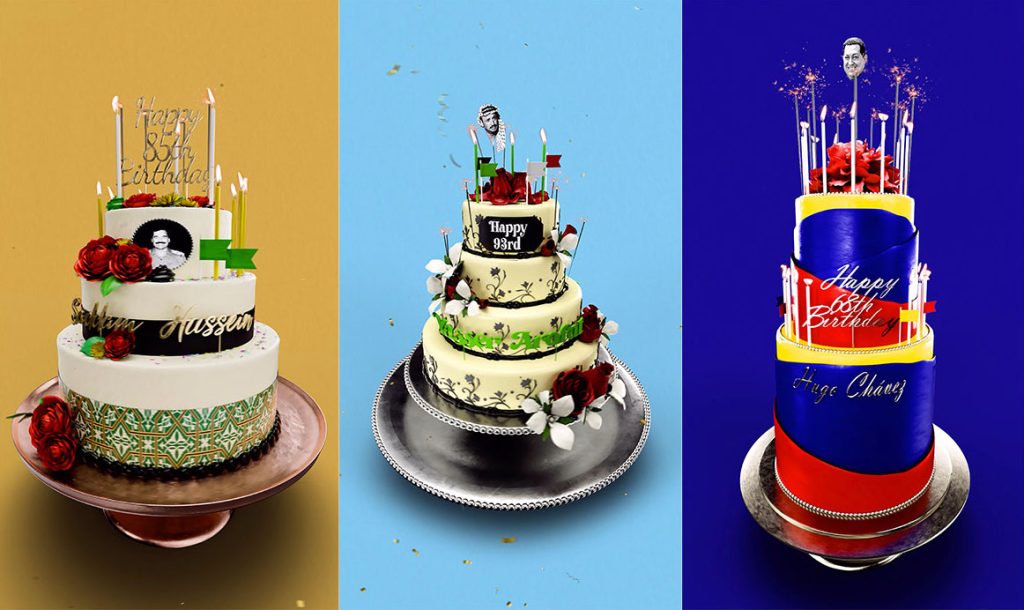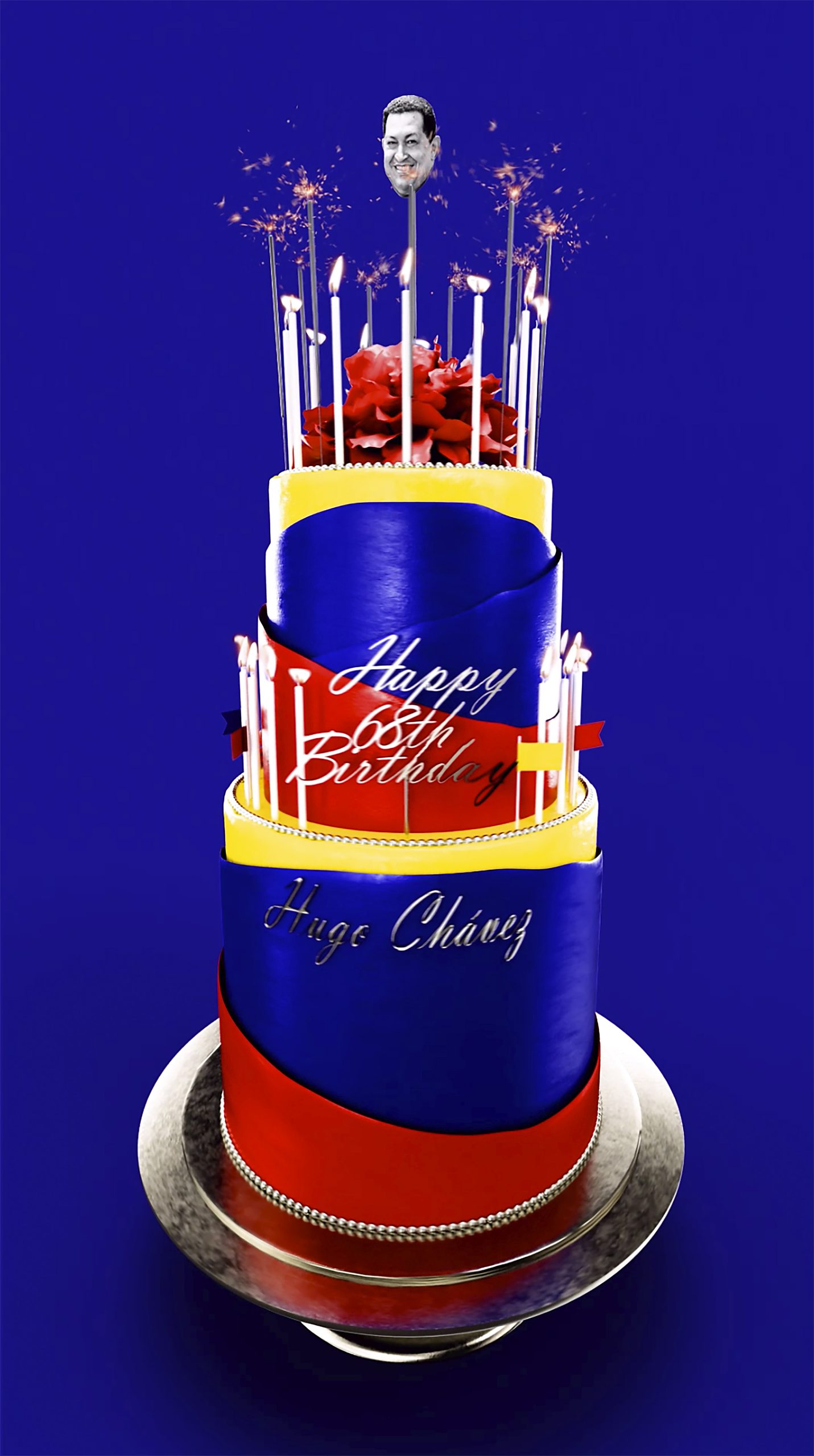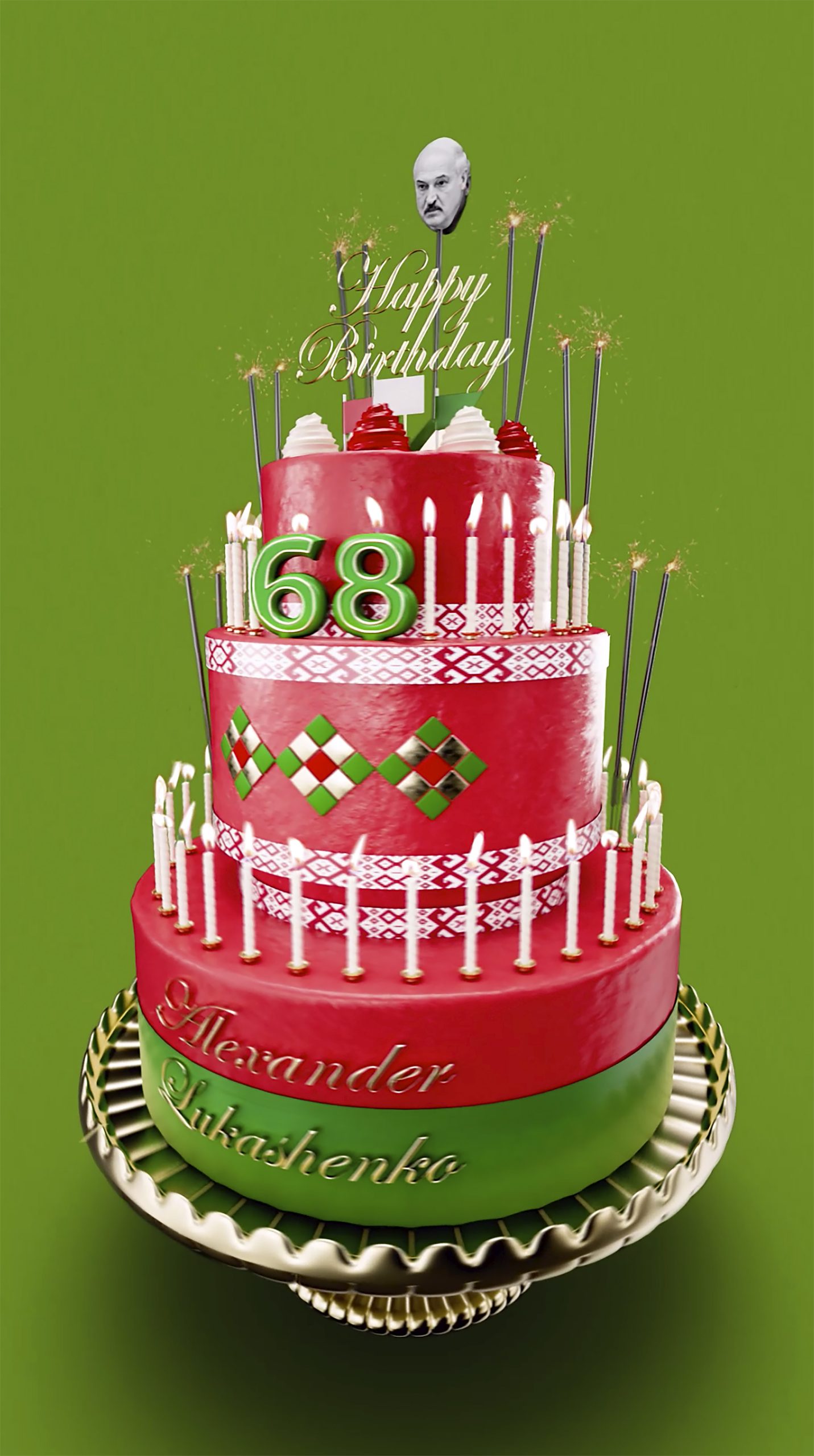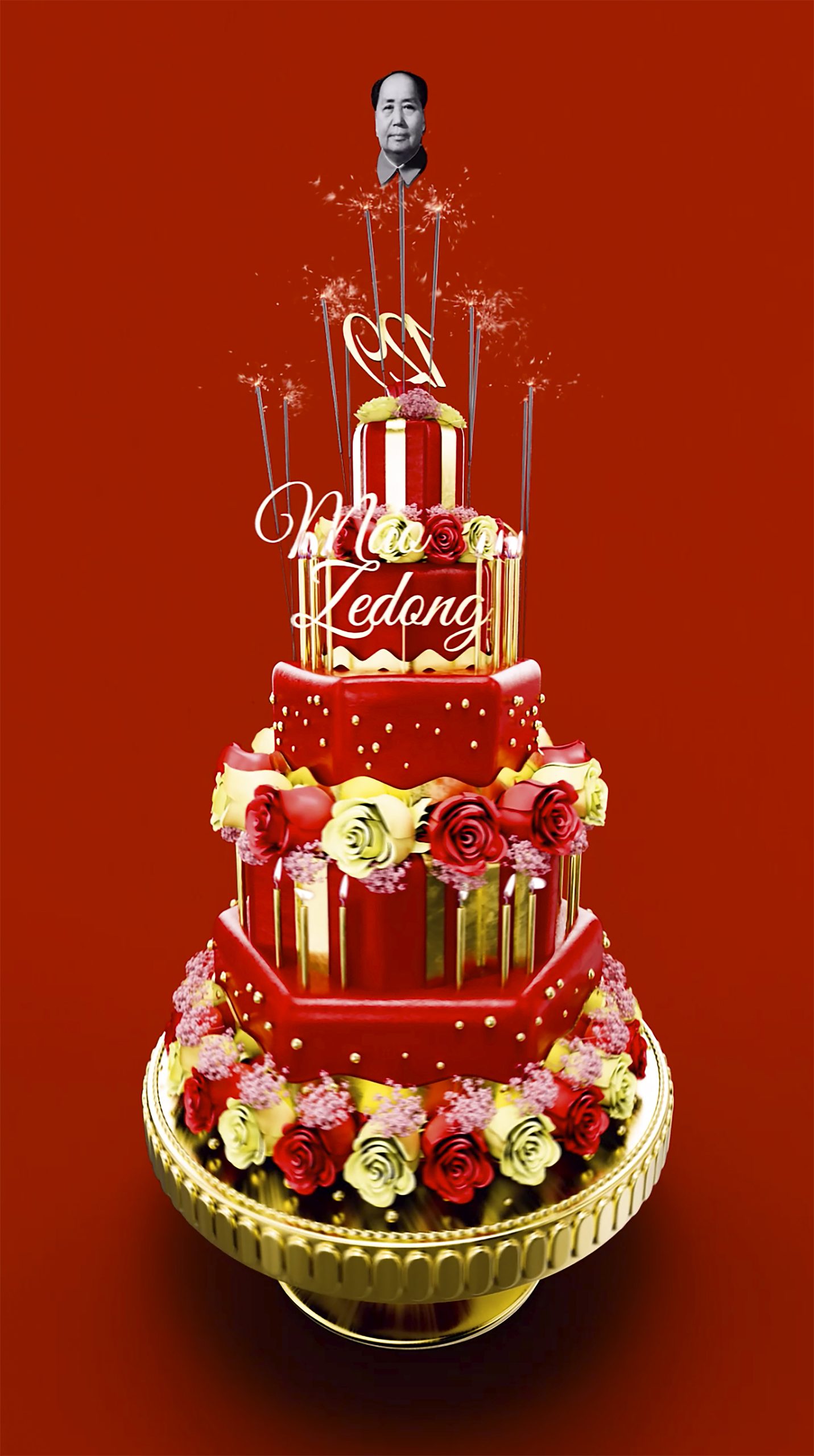Walid Raad’s “Festival of Gratitude” Uses Birthday Cakes to Examine Worldwide Fascism
New platform Artwrld debuts with an incisive project that mock-celebrates tyrants

On 28 July, the same day former and controversial president of Venezuela Hugo Chávez was born, art series Festival of Gratitude launched with decadent birthday cakes for Vladimir Putin, Abdullah of Saudi Arabia and Chavez himself. The mystifying NFT project is the inaugural series from new art platform Artwrld and stems from artist and co-founder of the platform Walid Raad whose performances, installations and photography often address politics. Through ostentatious and seemingly absurd digital cakes, Raad’s festival celebrates the birthday of tyrannical and controversial world leaders as a means of depicting the global state of fascism in an incisive manner.

The platform’s debut festival comprises 20 decadent and unique 1:1 NFT cakes that each represent infamous autocrats, from Reagan to Thatcher, Hussein, Gaddafi and Francisco Franco. All the digitally rendered cakes can be viewed now but will drop successively throughout the rest of the year and into the next. Each is outlandishly decorated, referencing each country’s flag and indicating how old the ruler would be.

They all also include slices that correspond to that age—and collectors who become cake holders receive an automatic 10 random slices, while the remainder are available for individual purchase. However, the slices are suffused with an element of surprise, revealing whether or not the cakes were poisoned with anthrax or blessed with ambrosia.

On the surface, the whole project may seem preposterous but the multitiered cakes are meaningfully layered. “The more sweet and beautiful it is, the more horrific,” explains Artwrld co-founder and former creative director of Creative Time, Nato Thompson. “It’s really tough to acknowledge what moment we’re in. We all know it; you just have to read the headlines and it’s all brutal. It’s meant to kick people in the gut entirely.”

The festival, then, serves as a bitter and ironic way to reckon with the political landscapes of today and throughout history. It eschews a blunt and straightforward medium for an elaborate and extravagant spectacle dressed in satire—and the effect is immediate.
“Here we are celebrating Vladimir Putin, someone who is clearly at war with the country of Ukraine but also not interested in the democratic tradition, is an autocratic leader and almost more of a mob boss than ruler. But simultaneously, Vladimir Putin is just the tip of the iceberg for rulers across the planet, where the strong male character dominates the landscape of politics—whether it’s in Brazil, whether it’s in Turkey or whether it’s in the United States,” continues Thompson. Indeed, when viewing the full batch of cakes Raad has created, it’s easy to see how fascism has (or perhaps always was) par for the course rather than an anomaly.
It says a lot about masculinity and narcissism
Cakes and tyrants also just make sense. “You might imagine any dictator loves a big cake,” Thompson says. “If you look at a picture of Trump with his cake—that’s a man that loves a big cake, and they all look like little boys excited to have everybody celebrate them. It says a lot about masculinity and narcissism.” To mock-celebrate these despots with grandiose birthday cakes is to condescend and critique them, weaponizing their power, misogyny and grandiosity against them.

This, however, is just one tier of the project’s greater ambitions. Raad, as a conceptual artist from Beirut who lived through Lebanon’s civil war, is personally invested in both the political sphere and the infrastructures of the art world at large. “Festival of Gratitude dovetails both of those interests: political history as well as a project that’s interested in using NFT technology as a way to recirculate funds to different organizations,” explains Thompson. As such, 60% of the primary profits from the project go to different art organizations including ArteEast, a non-profit dedicated to supporting contemporary art from the Middle East and North Africa. From Putin’s cake, all proceeds will be donated to Ukraine organizations that provide relief for those impacted by the war.
The project’s two-fold intentions reveal once again how vast the layers of this series is. Its concept that truly dedicates itself to fostering other artists points a less-than-subtle finger at other high-profile NFT projects that rely solely on hype and headlines, while oftentimes claiming to bring autonomy to artists and none of the funds to back it up. On the other hand, the festival’s relocation of profits is yet another of the project’s punchlines. Thompson says, “The fact that you can have a Vladimir Putin cake that redistributes money to Ukraine resources in one artwork is interesting. The fact that you can have cakes that redistribute money to alternative art non-profits is interesting in so much as, if you think of the commercial art world, here we have a technology where we can actually build an art world we care about, so that the subject of the artwork may be brutal but what we’re actually building is quite hopeful.”

The use of NFT technology here is both pragmatic (to donate money) and conceptual, as purchasing slices acts as a way for viewers to participate in the birthday party. Thompson likens this function of the festival to The Godfather Part II: “There’s a scene where Hyman Roth hands out a birthday cake for himself of Cuba. He hands out each slice to a different mob boss across the United States and each one is getting a piece of Cuba. Well, if you’re at a birthday party for Donald Trump and get a slice, you’re sort of ingesting a bit of that power, becoming complicit in this world of power. The slices are an ironic way to point at the kind of distribution of power that’s available within the cake at the birthday ceremony. We each become complicit. I’m not saying when you buy a slice you become complicit; it’s one of the poetics of the project.”

Therein lies the dogma of the platform Artwrld. Founded in 2021 by Thompson, Raad and Josh Goldblum, it’s not just another digital art space. Rather, it meaningfully and pragmatically translates artists’ works that it commissions into the web3 space. In doing so, the team hopes to create a better industry for artists.
How many times do you go to an art fair and there’s money flying everywhere but none of the artists get it?
Thompson tells us, “Think about all the money that circulated in the last four years in the art world and how much of it touched artists that were broke. How many times do you go to an art fair and there’s money flying everywhere but none of the artists get it? I’m 50 years old. I’ve been in the art world a long time—that has always been my experience. I’ve just seen money circulating and the shit I care about never getting any of it. How long can we passively sit by and let that happen? It’s outrageous and it doesn’t have to be that way.”
Festival of Gratitude is a fitting first series from the new platform. It’s outlandish, unique and aligned in its mission to build a better place for artists. If Artwrld’s future projects are anything like Raad’s cakes, the burgeoning organization is sure to be an exciting, radical new space to watch grow.
Images courtesy of Artwrld.com and artist












